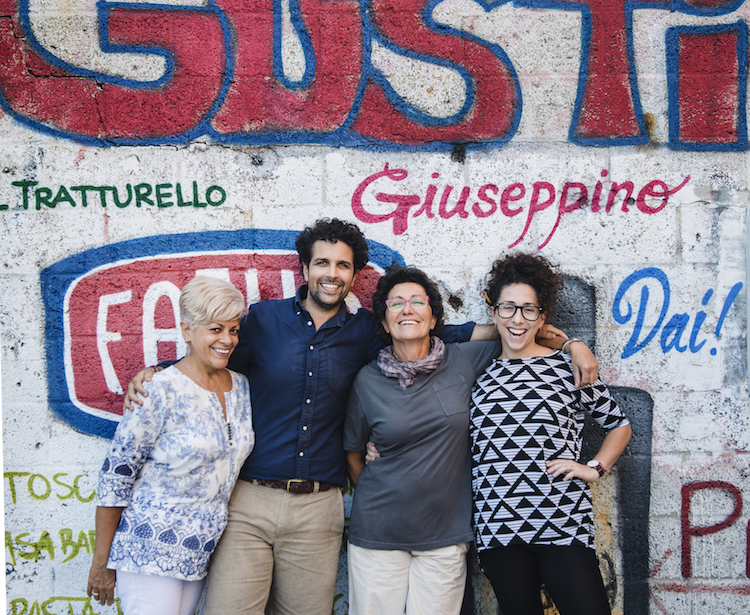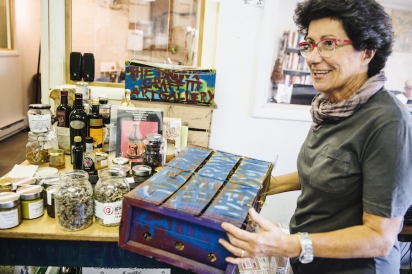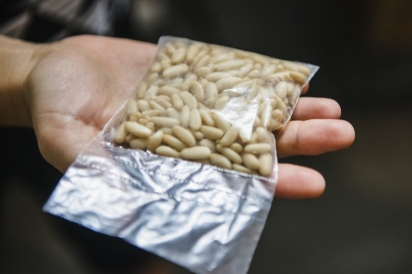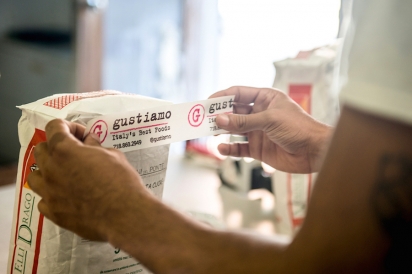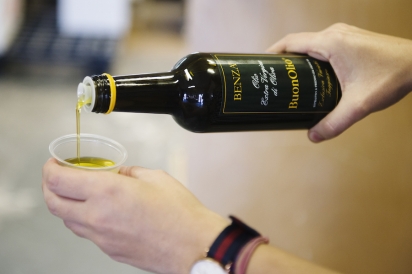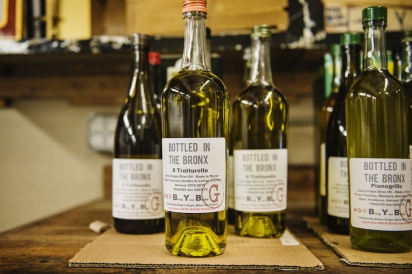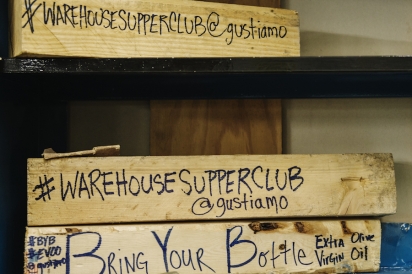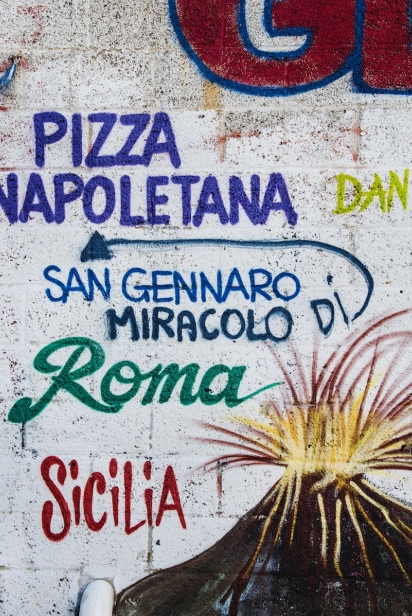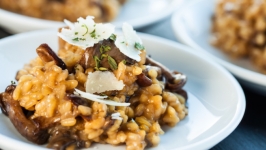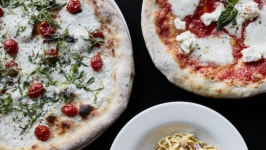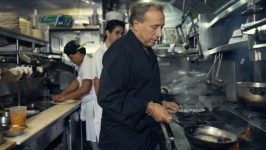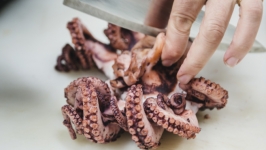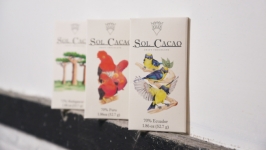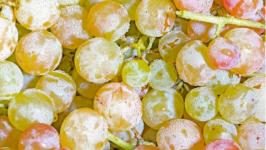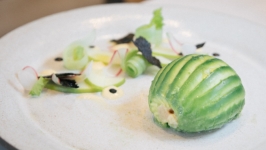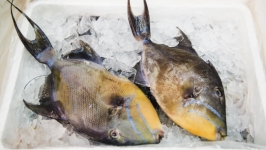The Italian Connection
Supporting small farmers and real food makers in Italy is one of the primary reasons Beatrice Ughi is passionate about Gustiamo, her Bronx business started in 1999. A desire to source some of the best-tasting Italian food items and pantry ingredients available in New York is another.
A native of Rome, Beatrice came to the United States and worked as a manager in an accounting firm. While she didn’t have experience in food sourcing, production or even cooking, she learned about a company that built an online store to sell great Italian food. She called them to inquire about bringing a version of the business to the U.S. The company set up in a large warehouse; ultimately, that model wasn’t sustainable. However, Beatrice was enamored with the Italian farmers and producers she connected with and so she decided to trim down the warehouse footprint. She found affordable space on West Farms Road and set up shop.
Beatrice is an independent importer, fostering a transatlantic farm-to-table focus from Italy to the Bronx. Primarily an online business, she opens the doors to the public every Friday. While we have access to Italian brands throughout the U.S.—especially in New York—the difference here is Beatrice makes it her mission to know the producers.
She regularly travels to visit producers in Italy to learn about how farmers grow their tomatoes, and she is well-schooled in the best practices for turning olives into olive oil. She even knows about specialty items like bottarga, the Italian delicacy of salted, cured fish roe. Many of these items are worth smuggling home in your suitcase from your Italian holiday—but with Gustiamo nearby, you don’t have to.
“To date, we’re the only business in the Bronx to receive the Slow Food NYC Snail of Approval,” says Beatrice of the designation given to food businesses contributing to the quality, authenticity and sustainability of the food supply of the City of New York.
She and her small staff stay connected to the farmers and artisans, so they know first-hand about the harvest of crops like the Piennolo tomatoes organically grown by Giovanni Marino of Casa Barone in the Mount Vesuvius National Park. These robust tomatoes are grown without irrigation and harvested without mechanical tools. The bright and bold flavor of the tomatoes, attributed to a volcanic terroir, makes these tomatoes a favorite, especially for sauces, and a mainstay that carries locals through the winter.
“We talk to our producers almost daily—we are grateful to ask the right questions and then are able to share the knowledge with our customers.” She adds, “We also visit them on trips to Italy. It’s making a connection with good food people there that’s important.”
Beatrice and her staff also introduce the farmers and producers to others in the U.S. Last year, she planned a visit to New York for Filippo Drago, the Sicilian grower and miller of ancient grains. Filippo is leading a grain revolution, and through extensive research and working with a seed library he and a group of Sicilian growers are saving these cultivars from extinction. His flours—such as the Pane Nero (stone ground without any part of the grain kernel removed) and the Semola Rimacinata (an everyday flour great for everything from pasta to bread to pizza dough and desserts)—are being sought out by New York artisans including those at She Wolf Bakery.
This fall, Beatrice and her social media content strategist, Danielle Aquino Roithmayr, are visiting a Sardinian beekeeper and honey producer Luigi Manias, who also produces Corbezzolo honey, a coveted honey with an intensely bitter flavor, a perfect pair with winter squashes. They are also making a stop to see Mario Manca, the 80-year-old producer of mullet bottarga, and the Pinna family in Sardinia, the manufacturers of Antichi Uliveti extra-virgin olive oil.
A highlight of visiting Gustiamo is to taste the olive oil, as you might do with a flight of wines. The Gustiamo extra-virgin olive oil (EVOO) offerings are selective—from the light Benza EVOO from Liguria to the fuller-flavored Il Tratturello hailing from north of Puglia, each one Gustiamo carries has been picked for the quality of the olives, harvest practices and specific flavor notes.
On Fridays, the day when the Gustiamo warehouse is open to the public, you may also “BYB” or bring your empty (and clean) wine bottle to fill with Pianogrillo for Gustiamo EVOO. (Note: If you forget your wine bottle, you can also purchase the oil in tins.) The Pianogrillo for Gustiamo is milled at Lorenzo Piccine’s mill near Ragusa, a blend of Sicilian olives sourced from his nearby farmer friends. This oil is a lighter, but complex tasting, an excellent multi-purpose olive oil you’ll be as happy using in preparation of pastas and salads as for dipping your bread.
While you’re there finding a great selection of provisions to fill your pantry, you can check out the “Gusti Shelf of Horrors,” which shows products that might be labeled as Italian but are not real Italian food. You’ll see cans of California tomatoes posing as the very specific San Marzano (Italian-grown) tomatoes and olive oil produced with oil hailing from countries other than Italy. In many cases, the labels include iconic Italian imagery but the ingredients don’t actually have an Italian provenance.
“There’s a great demand for Italian food,” says Beatrice, who notes that labeling something as Italian is a popular way to market a product. “However, more and more, there is inauthentic product—which, in the end, harms the small farmers and producers. What we do here is more than just selling a product; it’s about building and maintaining relationships.”
As you walk up to Gustiamo, you’re in for a visual treat, too. Beatrice engaged the collaborative work of a group of well-known local graffiti artists including Lady “K” Fever and Royal King Bee (who also uses the bee signature to draw attention to the worldwide bee decline) to create their art on the building’s exterior walls. These same artists work to decorate the wooden vegetable crates Beatrice gets from D’Arrigo Bros. Produce at Hunts Point Market. The beautiful crates are repurposed and filled with Gustiamo provisions and shipped as gift boxes for the holidays locally and across the country.
Beatrice says the Gustiamo warehouse space is also used for occasional staff dinners and rented out for events. “Having great food around always makes you want to cook more and enjoy a meal together.”
Check out the goodies Gustiamo imports


